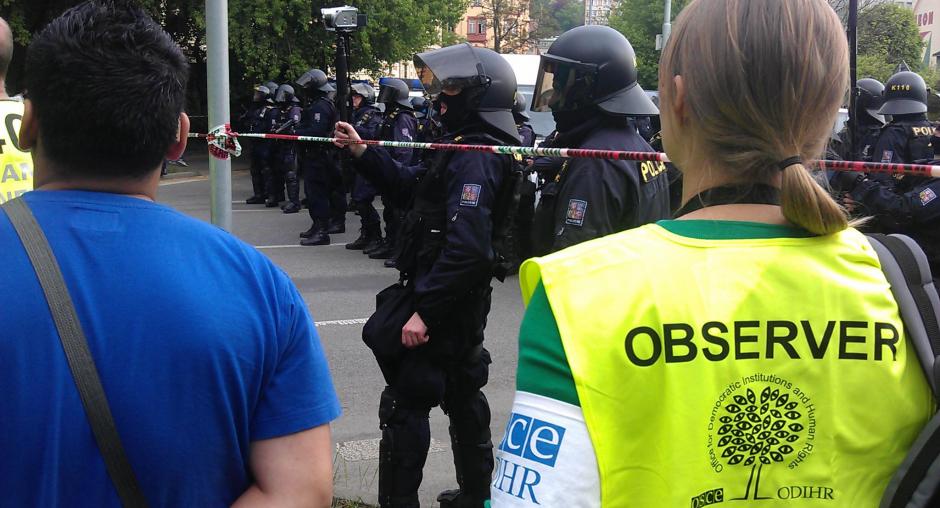OSCE/ODIHR report says undue restrictions to freedom of assembly persist

Some states continue to unduly restrict people’s ability to exercise their right to freedom of peaceful assembly in expressing their views, says a report on the monitoring of assemblies released by the OSCE Office for Democratic Institutions and Human Rights (ODIHR) in Vienna on 17 December 2014.
The report, Monitoring of Freedom of Peaceful Assembly in Selected OSCE Participating States (May 2013-July 2014), highlights that, in some cases, security or other considerations were cited by the authorities to justify restrictions assemblies that prevented participants from making their views known and heard by their target audiences.
“All peaceful assemblies, including spontaneous and unannounced ones, should be protected and facilitated,” said Omer Fisher, the Deputy Head of ODIHR’s Human Rights Department. “Through the monitoring of public assemblies, we have been able to gather information on the activities of both participants and law-enforcement officials that can be used to improve practice across the OSCE region.”
The release of the report follows the completion of ODIHR’s second cycle of monitoring, which took place from May 2013 to July 2014 and covered 26 assemblies in nine OSCE participating States: Albania, Bulgaria, the Czech Republic, France, Greece, Montenegro, the Netherlands, Portugal and Spain. The report from the first cycle was released in November 2012.
The current report utilizes the assemblies monitored as case examples to identify challenges and good practices and to provide recommendations on how international human rights standards and OSCE commitments relating to freedom of peaceful assembly can be better implemented in all OSCE participating States.
The presentation of the report was followed by a roundtable event that brought together civil society representatives and OSCE field offices with experience in assembly monitoring.
